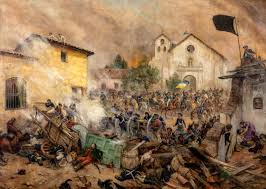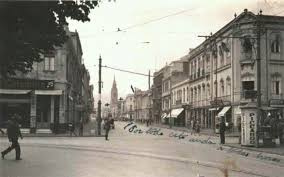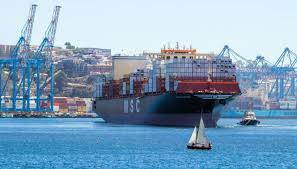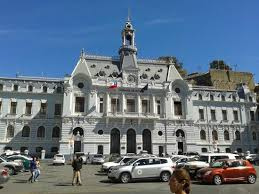What role did Valparaíso play during the Chilean War of Independence?

What role did Valparaíso play during the Chilean War of Independence?
What role did Valparaíso play during the Chilean War of Independence? Valparaíso played a pivotal role during the Chilean War of Independence, serving as a key strategic and logistical center for revolutionary activities.
The city’s geographic location and established port made it integral to the efforts to free Chile from Spanish colonial rule. Here’s an overview of Valparaíso’s contributions during this significant period in Chilean history.
Strategic Naval Base
Valparaíso’s natural harbor provided an ideal location for naval operations, making it a crucial base for revolutionary forces.
The port served as a launching point for naval expeditions against Spanish ships, facilitating the movement of troops and supplies.

Supply and Logistics Hub
The city functioned as a vital supply center for the revolutionary forces, providing essential resources such as arms, ammunition, and food.
Its bustling port allowed for the rapid transport of goods from other regions and international allies, bolstering the fight for independence.
Center of Political Activity
Valparaíso was not only a military hub but also a center for political organizing and revolutionary sentiment.
Local leaders and intellectuals used the city to rally support for independence, fostering a spirit of nationalism among the populace.
Landing of Troops
The port was instrumental in the landing of troops from other countries, including significant support from Argentina.
These reinforcements played a crucial role in key battles, helping to tip the scales in favor of the independence movement.
Battles and Skirmishes
Valparaíso witnessed various skirmishes and battles during the independence struggle, as control of the port was strategically important.
Conflicts in and around the city were pivotal in shaping the course of the war, as both sides sought to control this vital maritime access point.
International Relations
The port city established connections with foreign governments and maritime powers sympathetic to the Chilean cause.
These relationships facilitated the procurement of military aid and diplomatic support, enhancing the revolutionaries’ chances for success.
Cultural Exchange
Valparaíso’s role as a bustling port allowed for cultural exchange, bringing new ideas and revolutionary fervor from abroad.
This exchange helped inspire local leaders and citizens to actively participate in the independence movement.
Aftermath and Legacy
Following the successful conclusion of the war in 1818, Valparaíso emerged as a symbol of Chilean independence.
The city’s contributions during the war helped shape its identity as a major center of commerce and culture in the newly independent nation.
Continued Political Importance
Even after independence, Valparaíso remained a key political and military hub in Chile.
The city continued to play a role in subsequent conflicts and political movements, reflecting its lasting significance in Chilean history.
Cultural Commemoration
Today, Valparaíso honors its historical role in the War of Independence through monuments, museums, and educational programs.
These commemorations serve to educate future generations about the city’s contributions to the struggle for freedom and national identity.
In summary, Valparaíso was instrumental during the Chilean War of Independence, serving as a strategic naval base, logistical hub, and center of revolutionary activity.
Its contributions helped shape the course of the conflict and the future of Chile as an independent nation.
The legacy of Valparaíso’s involvement in the independence movement continues to be celebrated, marking the city as a key player in the history of Chile.





Leave a Reply